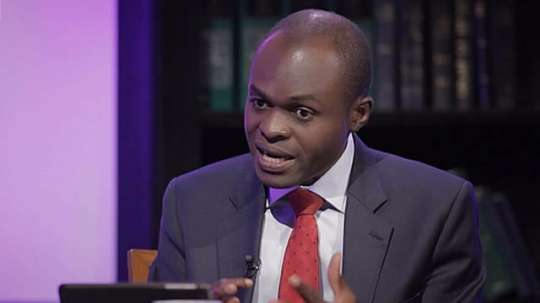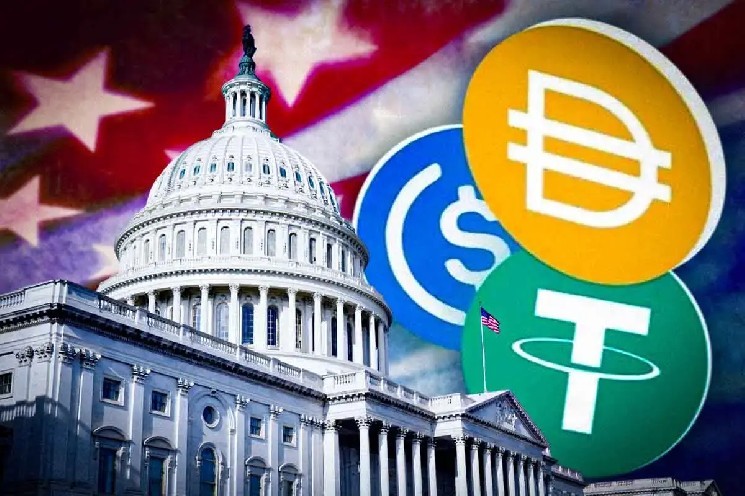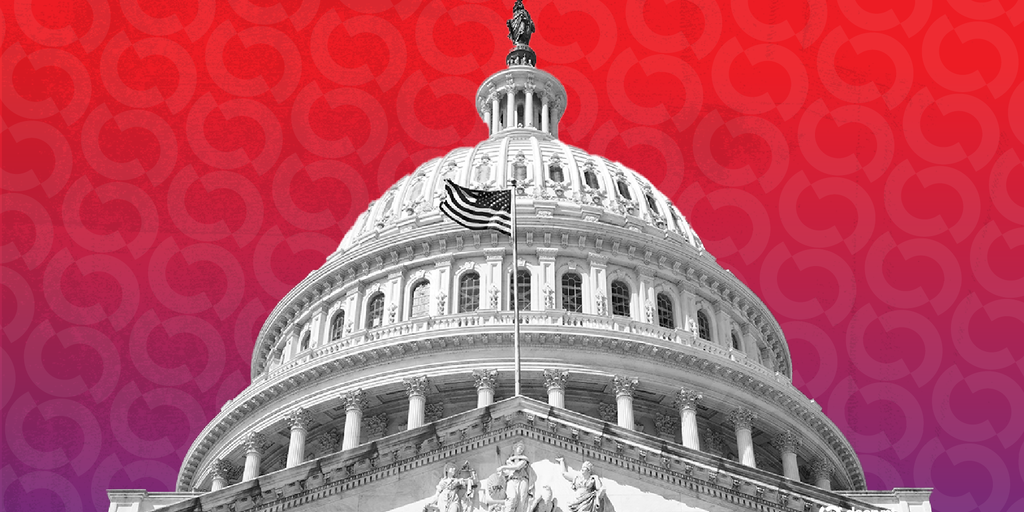SEC Crypto Task Force Hosts Its Inaugural Roundtable on Security Status
Client Alert | March 25, 2025
The dawn of a new era in crypto regulation was evident during the SEC Crypto Task Force’s inaugural roundtable on March 21, 2025. Crypto enthusiasts and skeptics met to discuss and debate the definition of a “security,” the regulation of digital assets, and the type of “fit-for-purpose” regulatory and disclosure framework that could be developed for such assets.
This inaugural roundtable was part of the SEC’s “Spring Sprint to Crypto Clarity“ series that aims to explore key areas of interest in the regulation of digital assets. Featuring industry supporters and critics alike, the roundtable discussions generally centered on three key issues:
To date, the SEC’s efforts to regulate digital assets have largely pivoted on the application of the “Howey” test in determining whether the digital asset is an “investment contract” and, therefore, a security subject to the federal securities laws.[1] The “investment contract” analysis set forth by the U.S. Supreme Court in SEC v. W.J. Howey requires four elements to be met for an “investment contract” to exist: (i) there is an investment of money (ii) in a common enterprise (iii) with a reasonable expectation of profits (iv) to be derived from the efforts of others.[2] In its 2019 Framework for “Investment Contract” Analysis of Digital Assets (the “Framework”),[3] the SEC Staff emphasized that determining whether a particular digital asset at the time of its offer or sale satisfies the Howey test depends on the specific facts and circumstances, and the inquiry is focused on the “economic realities” of the transaction. In prior years, the SEC has brought numerous crypto-related enforcement actions and civil suits and employed an expansive application of the Howey test to digital assets.
The formation of the Crypto Task Force, launch of the inaugural roundtable, and recent SEC staff guidance on meme coins and on proof-of-work mining activities appear to signal a policy shift away from prior years in how the SEC will apply and interpret Howey and the regulation of digital assets.
On February 27, 2025, the Staff of the SEC’s Division of Corporation Finance (the “Staff”) issued guidance on meme coins,[4] indicating that transactions in these digital assets generally do not involve the offer and sale of securities under federal securities laws.[5] The Staff reasoned that purchasers of meme coins make no investment in a common enterprise because their funds “are not pooled together to be deployed by promoters or other third parties for developing the coin or a related enterprise.”[6] Rather, the value of meme coins comes from “speculative trading and the collective sentiment of the market, like a collectible.”[7]
As discussed in Gibson Dunn’s March 21, 2025 Client Alert, on March 20, 2025, the Staff released a statement[8] providing its views on certain activities on proof-of-work (PoW) networks known as “mining.” The Staff stated that the mining activities described in the statement (i.e., “Protocol Mining”) generally do not constitute the offer and sale of securities under the federal securities laws, because the act of Protocol Mining, whether by solo miners or mining pools,[9] does not involve an expectation of profit derived from the entrepreneurial or managerial efforts of others. Rather, the miner’s expectation to receive rewards is “derived from the administrative or ministerial act of Protocol Mining performed by the miner.”[10] As such, rewards are “payments to the miner in exchange for services it provides to the network rather than profits derived from the entrepreneurial or managerial efforts of others.”[11]
Notably, Democrat Commissioner Caroline A. Crenshaw issued statements criticizing both the meme coin and PoW Staff guidance, contending that in both circumstances, the guidance failed to address the need for a facts and circumstances analysis focused on the economic realities of the specific arrangement under the Howey test.
Taken together, the Staff’s position on meme coins and PoW mining activities suggest that market participants may expect a reappraisal of the Howey test from the new SEC and its Staff going forward, one more focused on a common-sense analysis.
Roundtable panelists explored both the challenges and opportunities associated with defining the security status of digital assets, and several important themes emerged:
Notwithstanding these SEC developments and the broader policy shifts they may foretell, market participants should bear in mind that existing judicial decisions will continue to serve as precedent for transactions in digital assets and anticipated legislation will ultimately shape the regulatory environment for the industry.
Although the SEC has recently dropped or paused many of its high-profile lawsuits and investigations against major players in the crypto industry, private litigants may continue to rely on judicial decisions in prior SEC enforcement cases, which could continue to expose industry participants to uncertainty and litigation risk.[13]
In addition, many industry commentators expect that under a crypto-friendly administration, the Republican-controlled U.S. Congress will prioritize passing comprehensive legislation aimed at clarifying the regulatory environment around digital assets. Any final legislation will have a significant impact on the industry going forward. Although these developments are in the early stages, key legislative efforts include the following:
The roundtable surfaced many of the challenges associated with defining digital assets’ status as “securities,” while clearly demonstrating the need for a pathway to compliance that helps protect both entrepreneurs and investors to the extent the securities laws apply to digital assets. It appears that the SEC will continue to re-assess and clarify its interpretation of the Howey test’s application to digital assets. The SEC also will likely continue its work towards providing a clearer regulatory framework.
Accordingly, while industry participants should expect additional changes in the SEC’s policy and enforcement approach towards digital assets, they should be mindful of legal risks that potentially apply to their current business and strategic plans. Moreover, a reduction in SEC crypto-focused enforcement should not be interpreted as the elimination of litigation risk associated with digital assets, especially given the possible emergence of a significantly more active private civil litigation bar.
Finally, in contrast to the last several years, it appears from the roundtable and the recent Staff guidance that the Staff may be ready for productive engagement and consultation with individual market participants.
[1] The term “security” is defined in Section 2(a)(1) of the Securities Act of 1933, as amended (Securities Act), Section 3(a)(10) of the Securities Exchange Act of 1934, as amended (Exchange Act), Section 2(a)(36) of the Investment Company Act of 1940, and Section 202(a)(18) of the Investment Advisers Act of 1940, and includes the term, “investment contract.”
[2] See SEC v. W.J. Howey Co., 328 U.S. 293 (1946) (“Howey”).
[3] Framework for “Investment Contract” Analysis of Digital Assets (Apr. 3, 2019), https://www.sec.gov/about/divisions-offices/division-corporation-finance/framework-investment-contract-analysis-digital-assets. See also William Hinman, Digital Asset Transactions: When Howey Met Gary (Plastic), Remarks at the Yahoo Finance All Markets Summit: Crypto (Jun. 14, 2018), https://www.sec.gov/news/speech/speech-hinman-061418.
[4] The Staff defined a meme coin as “a type of crypto asset inspired by internet memes, characters, current events, or trends for which the promoter seeks to attract an enthusiastic online community.”
[5] Staff Statement on Meme Coins, Division of Corporation Finance (Feb. 27, 2025), https://www.sec.gov/newsroom/speeches-statements/staff-statement-meme-coins.
[6] Id.
[7] Id.
[8] Statement on Certain Proof-of-Work Mining Activities, Division of Corporation Finance (Mar. 20, 2025), https://www.sec.gov/newsroom/speeches-statements/statement-certain-proof-work-mining-activities-032025?utm_medium=email&utm_source=govdelivery#_ftnref1.
[9] Mining pools are arrangements where computational resources are pooled to increase participating miners’ chances of successfully validating transactions and earning rewards. Mining pools may be administered by a pool operator who typically is responsible for coordinating the miners’ computational resources, maintaining the pool’s mining hardware and software, overseeing the pool’s security measures to protect against theft and cyberattacks, and ensuring that the miners are paid rewards.
[10] Statement on Certain Proof-of-Work Mining Activities, supra note 8.
[11] Id.
[12] See Loper Bright Enterprises v. Raimondo, 603 U.S. 369 (2024), in which the U.S. Supreme Court overruled Chevron v. Natural Resources Defense Council, 467 U.S. 837 (1984), and provided that judges must independently interpret statutes without deference to an agency’s reading of the law.
[13] See, e.g., SEC v. Terraform Labs Pte. Ltd., 2023 WL 8944860 (S.D.N.Y. Dec. 28, 2023); SEC v. Terraform Labs Pte Ltd., 2023 WL 4858299 (S.D.N.Y. July 31, 2023).
[14] The GENIUS Act defines a payment stablecoin as a digital asset that is or is designed to be used as a means of payment or settlement if: (i) the issuer is obligated to convert, redeem, or repurchase for a fixed amount of monetary value; (ii) it will maintain a stable value relative to the value of a fixed amount of monetary value; and (iii) it is not a national currency, bank deposit, interest-bearing instrument, or a security under federal securities laws (other than by virtue of being a bond, note, evidence of indebtedness, or investment contract). GENIUS Act, § 2(15)(A).
[15] Under the GENIUS Act, payment stablecoins would also be excluded from the definition of “commodity” in the Commodity Exchange Act of 1936, and the definition of an “investment company” under the Investment Company Act of 1940.
The following Gibson Dunn lawyers prepared this update: Tom Kim, Mellissa Duru, Jeff Steiner, Sara Weed, Matt Gregory, Kendall Day, Stella Kwak, and Michael Svedman.
Gibson Dunn’s lawyers are available to assist with any questions you may have regarding these developments. To learn more, please contact the Gibson Dunn lawyer with whom you usually work in the firm’s Securities Regulation & Corporate Governance or Fintech & Digital Assets practice groups, the authors, or any of the following practice leaders and members:
:
Elizabeth Ising – Washington, D.C. (+1 202.955.8287, [email protected])
Thomas J. Kim – Washington, D.C. (+1 202.887.3550, [email protected])
James J. Moloney – Orange County (+1 949.451.4343, [email protected])
Lori Zyskowski – New York (+1 212.351.2309, [email protected])
Aaron Briggs – San Francisco (+1 415.393.8297, [email protected])
Mellissa Campbell Duru – Washington, D.C. (+1 202.955.8204, [email protected])
Brian J. Lane – Washington, D.C. (+1 202.887.3646, [email protected])
Julia Lapitskaya – New York (+1 212.351.2354, [email protected])
Ronald O. Mueller – Washington, D.C. (+1 202.955.8671, [email protected])
Michael Scanlon – Washington, D.C.(+1 202.887.3668, [email protected])
Michael A. Titera – Orange County (+1 949.451.4365, [email protected])
:
M. Kendall Day – Washington, D.C. (+1 202.955.8220, [email protected])
Jeffrey L. Steiner – Washington, D.C. (+1 202.887.3632, [email protected])
Sara K. Weed – Washington, D.C. (+1 202.955.8507, [email protected])
Matt Gregory – Washington, D.C. (+1 202.887.3635, [email protected])
© 2025 Gibson, Dunn & Crutcher LLP. All rights reserved. For contact and other information, please visit us at www.gibsondunn.com.
Attorney Advertising: These materials were prepared for general informational purposes only based on information available at the time of publication and are not intended as, do not constitute, and should not be relied upon as, legal advice or a legal opinion on any specific facts or circumstances. Gibson Dunn (and its affiliates, attorneys, and employees) shall not have any liability in connection with any use of these materials. The sharing of these materials does not establish an attorney-client relationship with the recipient and should not be relied upon as an alternative for advice from qualified counsel. Please note that facts and circumstances may vary, and prior results do not guarantee a similar outcome.












